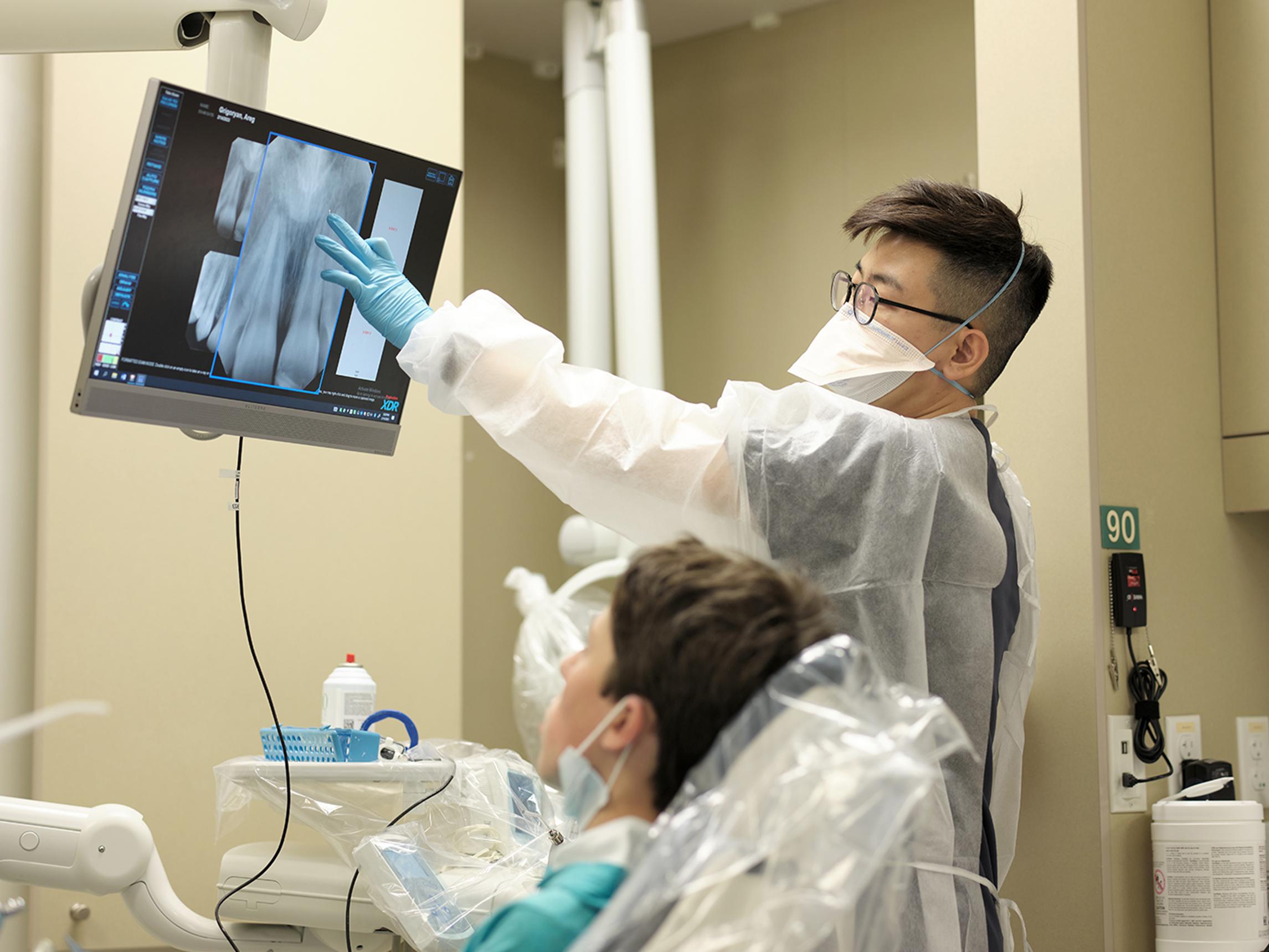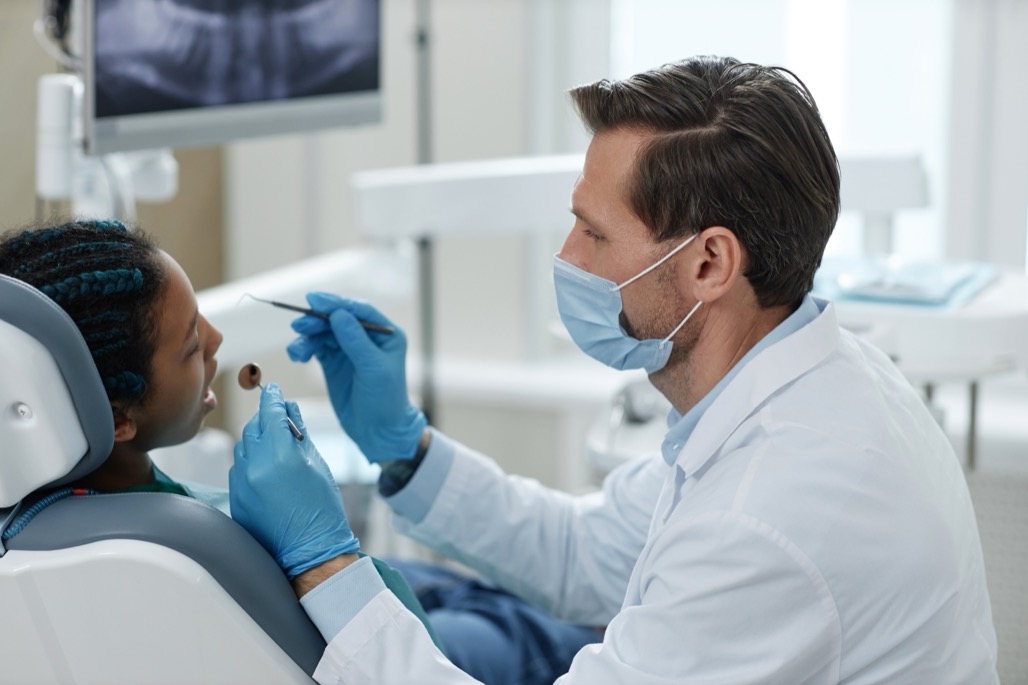Learn the Top Dentist Eugene Oregon Homeowners Recommend for Exceptional Treatment
An Overview to Typical Dental Problems That Need a Dental professional's Treatment
Toothaches, for instance, can be symptomatic of serious concerns such as tooth cavities, cracked teeth, or abscesses, each calling for details treatments like dental fillings or origin canals. Affected knowledge teeth and jaw conditions can present significant discomfort and complications.
Toothaches
Toothaches are an usual oral problem that can range from mild discomfort to extreme discomfort, commonly suggesting an underlying issue that calls for expert interest. This pain can stem from a variety of sources, including tooth decays, broken or fractured teeth, and dental abscesses. Each of these problems poses substantial dangers if left neglected, potentially causing much more severe difficulties.
Dental cavities, additionally understood as caries, are created by the build-up of plaque that wears down tooth enamel, leading to openings or pits in the impacted teeth. Abscesses are unpleasant infections at the root of a tooth or in between a tooth and the gum, generally resulting from extreme decay or unattended tooth cavities.
Efficient therapy of toothaches includes dealing with the origin cause. This might include dental fillings for cavities, crowns for broken teeth, or root canals and antibiotics for abscesses. Very early intervention by a dental expert can stop additional degeneration and alleviate pain, ensuring ideal oral wellness.
Gum Illness
Periodontal disease, a widespread yet typically neglected dental problem, shows up through swelling and infection of the periodontals and sustaining tissues. This problem mostly occurs in two phases: gingivitis and periodontitis. Gingivitis, the milder kind, provides with signs and symptoms such as red, inflamed gums that might hemorrhage easily during cleaning or flossing. If left untreated, gingivitis can proceed to periodontitis, a much more serious kind identified by the damage of the sustaining bone and connective cells, inevitably bring about missing teeth.
The primary source of gum illness is microbial plaque, a sticky, colorless film that constantly bases on teeth. Poor oral health, smoking, genetic predisposition, and certain medical conditions, such as diabetes, can exacerbate the risk of developing periodontal illness. Routine dental examinations are important for very early detection and administration of this condition.
Treatment for periodontal condition varies from professional oral cleansing and scaling to even more sophisticated procedures like origin planing and gum surgical procedure, relying on the intensity. Maintaining good dental health practices, consisting of brushing twice daily, flossing, and using a disinfectant mouth wash, can dramatically minimize the risk of gum tissue condition and promote much healthier periodontals.
Tooth Cavities
Dental caries, also referred to as oral decays, are an usual dental problem defined by the damage of tooth enamel as a result of acid-producing germs in the mouth. These microorganisms prosper on sugars and starches from food and beverages, generating acids that gradually wear down the enamel, bring about tooth cavity development.
Early-stage cavities may disappoint symptoms, however as they advance, they can trigger toothache, sensitivity to cold or warm, noticeable openings or pits in the teeth, and staining. If left neglected, dental caries can penetrate deeper layers of the tooth, potentially leading to extreme discomfort, infection, and also missing teeth.
Protecting against cavities entails a combination of great oral hygiene practices and nutritional behaviors. Routine cleaning with fluoride toothpaste, flossing, and regular oral examinations are critical. Dental practitioners might additionally recommend added safety nets, such as fluoride therapies and dental sealers, to safeguard teeth from degeneration.
Therapy for dental caries depends upon their severity. Minor tooth cavities can be attended to with oral fillings, which bring back the tooth's structure. A lot more sophisticated cases may call for crowns or also origin canal treatment if the decay has gotten to the tooth's pulp. Prompt intervention by a dental professional is essential to avoid issues and maintain overall dental wellness.

Impacted Knowledge Teeth
Influenced wisdom teeth are a common oral issue that happens when the 3rd molars, typically described as knowledge teeth, fail to completely arise or align correctly within the mouth. This problem frequently arises from not enough room in the jaw or an irregular development angle of the teeth. Influenced wisdom teeth can bring about a selection of issues, including infection, discomfort, and damages to adjacent teeth.
When wisdom teeth end up being impacted, they are often partly appeared or remain totally beneath the gum line. This partial eruption can develop a pathway for microorganisms to get in the gum tissues, resulting in infections that manifest as swelling, pain, and also high temperature. In addition, influenced knowledge teeth other can exert pressure on surrounding teeth, possibly creating crowding or changing.
An extensive dental examination, generally involving X-rays, is important for detecting influenced wisdom teeth. Therapy typically involves medical removal, done by a dental cosmetic surgeon. The treatment intends to relieve discomfort and avoid more issues, such as cysts or damages to surrounding bone frameworks. Post-operative treatment is critical to ensure appropriate recovery and lessen the danger of infection. Regular oral check-ups are advisable to check the condition and preserve oral health.
Jaw Problems
Jaw disorders, collectively referred to as temporomandibular joint (TMJ) problems, include a variety of conditions that impact the jaw joint and bordering muscle mass. These problems can materialize through signs such as discomfort or tenderness in the jaw, trouble eating, a clicking or popping noise when closing the mouth or opening, and even persistent headaches. TMJ problems can arise from various elements, including arthritis, jaw injury, or habitual behaviors like teeth grinding or jaw clenching.
Medical diagnosis of TMJ disorders generally involves a thorough examination by a dentist, consisting of a health examination of the jaw, dental X-rays, and in some cases progressed imaging methods like MRI or CT checks to examine the joint's condition. click to read Therapy alternatives vary depending on the intensity of the disorder. Non-invasive techniques such as physical treatment, oral splints, and medications focused on lowering swelling and pain are typically first-line therapies. In more extreme cases, medical treatments might be necessary to deal with structural issues within the joint.
Very early treatment by an oral professional is important to avoid the progression of TMJ conditions and to keep general dental health. Individuals experiencing consistent jaw discomfort or disorder need to look for timely evaluation and treatment.
Conclusion
Preserving oral health requires prompt specialist like attend to common oral problems. Toothaches typically indicate underlying problems such as cavities, fractured teeth, or abscesses, needing prompt intervention. Gum disease, from gingivitis to periodontitis, demands normal dental check-ups and cleansings to stop progression. Affected wisdom teeth and jaw conditions also require expert attention to reduce discomfort and avoid additional difficulties. Regular oral gos to are important for identifying and treating these problems, making sure total dental health and well-being.
Dental dental caries, also understood as caries, are triggered by the build-up of plaque that wears down tooth enamel, leading to openings or pits you can find out more in the influenced teeth. Abscesses are agonizing infections at the root of a tooth or in between the gum and a tooth, typically resulting from extreme decay or unattended dental caries.

Furthermore, impacted knowledge teeth can apply pressure on bordering teeth, possibly causing crowding or moving.